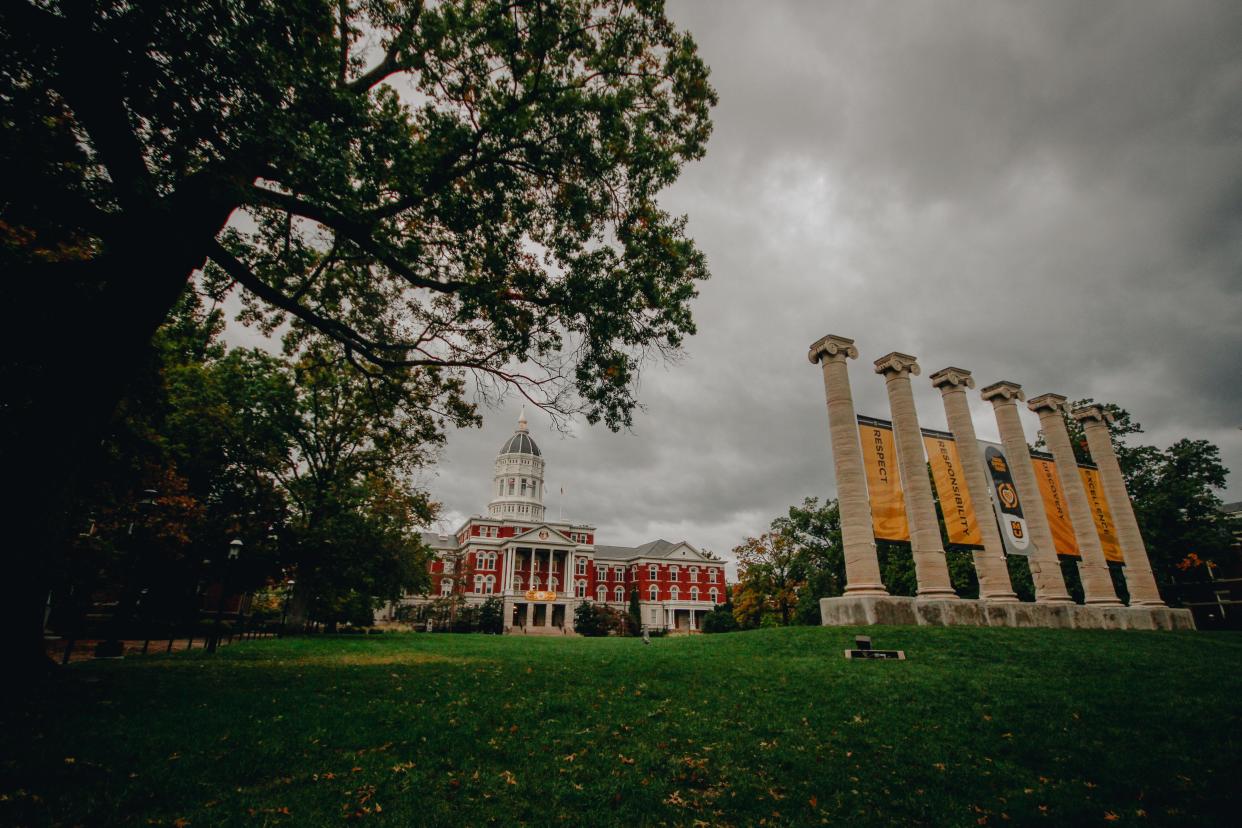Mysterious 'ironclad' and 'rock-solid' guarantees in state statutes

Editor's note: This is the final in a three-part series titled "UM employee pensions: When a promise isn’t an obligation."
Funding of the University of Missouri defined benefit pension plan is wholly discretionary and contingent on current decisions of the UM Board of Curators. The plan can be terminated at any time for any reason, and, if trust funds are insufficient to pay all earned benefits, the trust funds need not be augmented by other funding sources to fulfill some statutory or university guarantees.
Notwithstanding that these facts are documented in the Collected Rules and Regulations of the University (CRRs), a meeting with retirees was held in June 2022 in which multiple officials of the four-campus University of Missouri System described the university’s pension promises as “ironclad” and “rock-solid” legal obligations under state law.
However, when asked to identify those laws they won’t (or can’t) cite the state statutes. They have since not walked back the “ironclad” and “rock-solid” assertions, but have not repeated them either. They are a mystery. No legislative actions appear to supersede or overrule the governing employment contract reflected in the Collected Rules.
These were issues documented in an August 2022 analysis provided to the UM Total Rewards Advisory Committee (TRAC), the only system-wide administrator/faculty/staff/retiree committee that advises, or otherwise provides an organizational interface with, the Intercampus Faculty Cabinet (IFC), the Intercampus Staff Council (UM-ISAC), and the Board of Curators concerning system-wide pay and benefit issues.
As required by charter, members are selected because they are actively engaged in the university, are recognized leaders, and are resources for their peers.
Responding in September for TRAC, the UM Vice President for Human Resources stated that pension liabilities represent “a significant debt of the University.” However, she continues, the pension “policy outlines a plan to fund these liabilities over the remaining life of the Plan.” Despite that statement, the lifelong funding is at the curators’ discretion and is therefore one of today’s reversible promises without a university or state guarantee.
Also responding to the August document, Ryan Rapp, UM Executive Vice President of Finance and Operations, was brief and blunt: “As a leadership team, this matter is considered closed. We do not share your concerns or find them valid.”
Some argue that the U.S. Employee Retirement Income Security Act (ERISA) of 1974 and its creation, the Pension Benefit Guaranty Corporation (PBGC), will bail out the UM pension fund if the plan ever collapses. However, both ERISA and the PBGC only apply to private employers. Government employees, including UM employees and retirees, are not eligible for ERISA/PBGC protections.
Another argument, this offered by an attorney, was that the university would never starve or terminate the pension fund for the simple fact that the university could anticipate that hundreds of lawsuits, by retirees and active employees, would be filed within days. Indeed, a class action might be initiated; however, the university seems to have two powerful defenses that would likely prevail.
First, the university would argue, as they often do in response to litigation, that they have “sovereign immunity.” This protection precludes a party from asserting a cause of action against the government without its consent. In other words, as strange as it may seem, the university would have to agree to be sued.
Even if that failed, UM’s affirmative defense would be that they are only implementing university rights that have existed for years, specifically its rights of discretionary funding and plan termination, which are contained in the employment contract with the employee or retiree. Again, in the absence of overriding statutes, that employment contract is the Collected Rules and Regulations. The university is only doing that which it told employees it might do, and those employees agreed to those terms when they signed on. It may make for bad press, but the university has the high hand if an individual or group sought relief in the courts.
It would be neglectful not to mention that no retirement benefit to a pensioner has gone unfulfilled at any time in the 64 years of the UM Defined Benefit Retirement Plan. Required payments to members under the Plan have been made through eight recessions. However, as financial advertisements remind us, past performance is no guarantee of future performance.
As COVID-19 taught us, unexpected and uncontrollable circumstances can present themselves and may upset the best-laid plans. A trust fund collapse may not be foreseen but may present itself nonetheless. The instability of underfunded public pension plans (e.g., Illinois) has been in the news for years.
There are no guarantees in the UM defined benefit pension plan, only unenforceable promises from ranking executives who may be here today but gone tomorrow. The University of Missouri Board of Curators should revise their written Collected Rules and Regulations to clearly and formally guarantee, or otherwise obligate the university for, all earned and vested retirement benefits. There is no reason that UM should be the institutional exception, rather than the rule, in this regard.
At the same time, the UM curators should add provisions that would give active employees and retirees seats on the Pension Fund Board of Trustees. Going forward, this would maintain some degree of trust in the pension plan’s integrity.
Art Jago is Professor Emeritus of Management, Trulaske College of Business, at the University of Missouri. He is a former chair of the Department of Management, but now receives a university pension check each month after 23 years of service.
This article originally appeared on Columbia Daily Tribune: Mysterious 'ironclad' and 'rock-solid' guarantees in state statutes

